If you’ve been to a wedding in the past few years, there’s a good chance the couple who tied the knot came from different racial backgrounds. Or at least, given the increasing diversity of the United States and more open hearts and minds, interracial marriage is more likely than it used to be.
Indeed, a 2015 analysis of U.S. Census Bureau data by Pew Research Center found that “17% of all U.S. newlyweds had a spouse of a different race or ethnicity.”
That’s up from 3% in 1967, the year interracial marriage became fully legal in the United States. That year the United States Supreme Court ruled in the famous Loving v. Virginia case, which declared that anti-miscegenation laws were unconstitutional. Until this ruling, interracial marriages were still against the law in 16 states, and interracial couples faced harassment and imprisonment.
RELATED: Interracial Dating: Struggle and Success Stories
But, given that humanity’s oneness is one of the core principles, the Baha’i Faith champions and encourages interracial marriage in its holy writings. Abdu’l-Baha, one of the central figures of the Baha’i Faith, wrote more than 50 years earlier:
If it be possible, gather together these two races, black and white, into one assembly and put such love into their hearts that they shall not only unite but even intermarry. Be sure that the result of this will abolish differences and disputes between black and white. Moreover by the will of God, may it be so. This is a great service to the world of humanity.
With spiritual guidance and support like this from Abdu’l-Baha, many interracial Baha’i couples had the inspiration they needed not to let hateful anti-miscegenation laws stop them from marrying the loves of their lives. Farnazeh and Jack Guillebeaux, an Iranian woman and a Black man, were one of these couples. In this video interview for The Race Unity Project, they tell the touching story of their pre-Loving Decision wedding.
RELATED: Interracial Marriage: A Love at First Sight Story
“We were aware that interracial marriages were forbidden in North Carolina, so we knew that, in order to get married, we had to leave the state,” Farnazeh says in the clip. “And since we had to leave the state, although that wasn’t the closest place possible, we decided we had to go to the Baha’i Temple in Chicago and got married there.”
The temple Farzaneh refers to is the Baha’i House of Worship in suburban Wilmette, Illinois. It’s one of eight continental Baha’i temples and is the only one located in North America. Abdu’l-Baha himself laid the cornerstone for the structure during his visit to the United States in 1912, and people of all faith backgrounds — or no faith at all — are welcome there. Farzaneh says they were so excited to visit this special holy place for the first time that they “just ran around watching the temple from all sides.”
After they got married, they went back to Asheville, North Carolina to have their wedding reception at the local YWCA, which Farzaneh says was “probably one of the only places that you could have an interracial meeting” at the time.
She recalls that “As we were dancing on the dance floor, I pointed to some people, and I was saying, ‘Jack, are those your friends or people you invited?’ He said, ‘No, I thought you knew them.’ So, we discovered that a lot of townspeople had just shown up to see if this really was going to happen or not.”
RELATED: How Spirituality Helped an Interracial Couple Confront Racism
“Some people wanted to experience this,” Jack says. He explains that it was the first time anything like that had happened in Asheville or in North Carolina that anybody knew of. And some hateful people were angry that the YWCA was hosting an interracial wedding ceremony, because several years later, Jack’s mother informed him that there had been a bomb scare that night.
Spotlighting personal and inspiring interracial stories like these is the goal of The Race Unity Project, an initiative produced by Journalism for Change, Inc, a nonprofit media organization founded by filmmaker and human rights activist Maziar Bahari. Through interviews with Baha’is from around the country, the project tells “the century-long story of the American Baha’i community and its efforts — as well as its tests and challenges — in promoting race unity.”
Videos from “The Race Unity Project” include a variety of candid interviews about race — including stories of how the Baha’i gospel choir fosters friendships with people from all over the world and reflections on how the Baha’i Faith affirms and empowers Black people.
Watch as Farnazeh and Jack Guillebeaux share more about how the Asheville community’s attitude toward interracial marriage changed and the warm response they received when they celebrated their 25th wedding anniversary.
Radiance Talley serves as the director of operations at BahaiTeachings.org, where she integrates her expertise in SEO, journalism, design, and publishing into every aspect of her work. She has edited and written hundreds of articles for BahaiTeachings.org and has also written and optimized articles for...
READ MORE

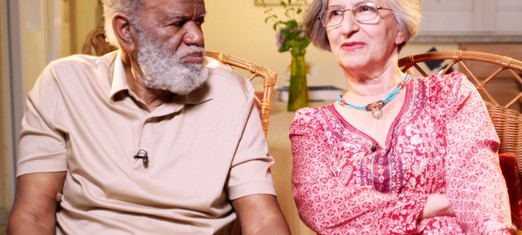

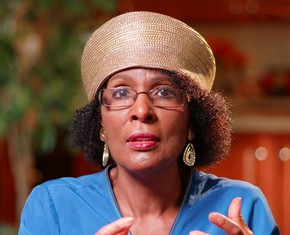
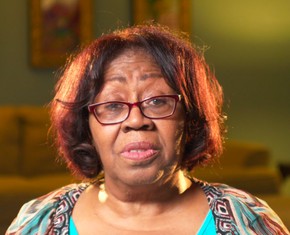
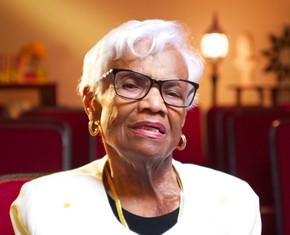
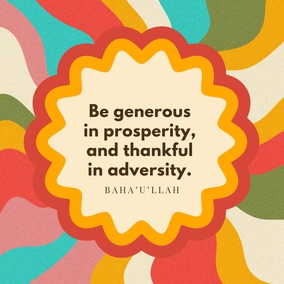








Comments
Sign in or create an account
Continue with Googleor